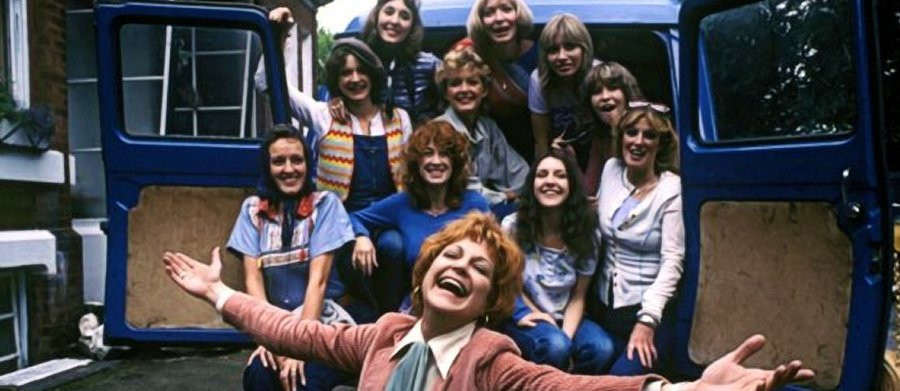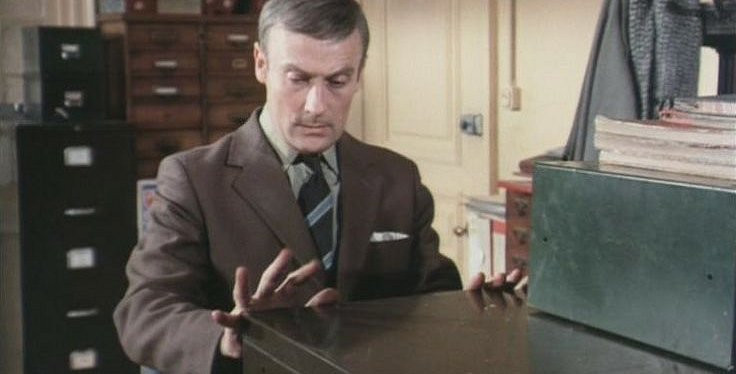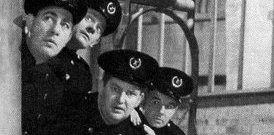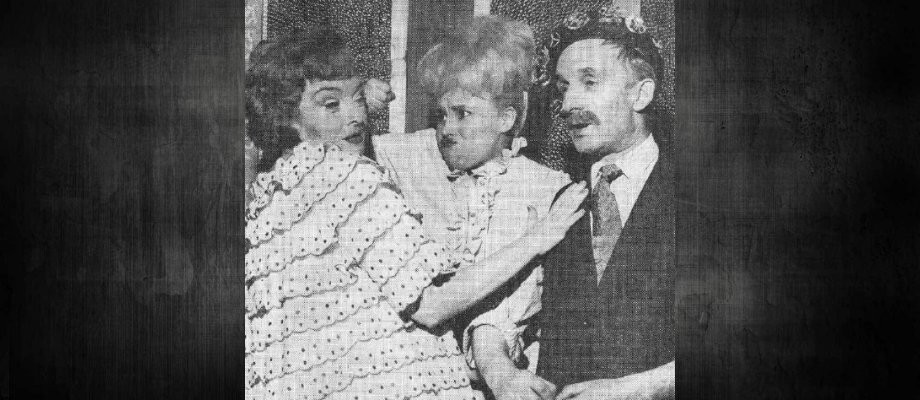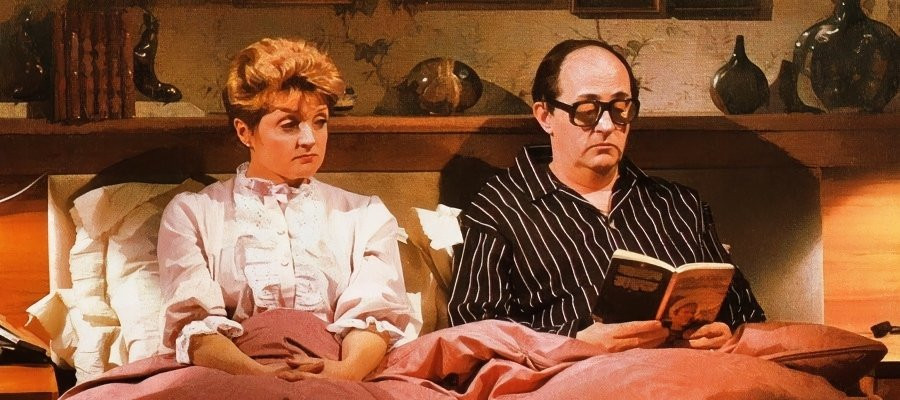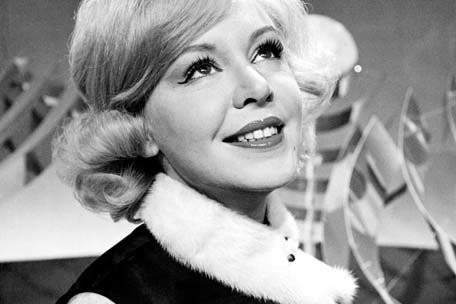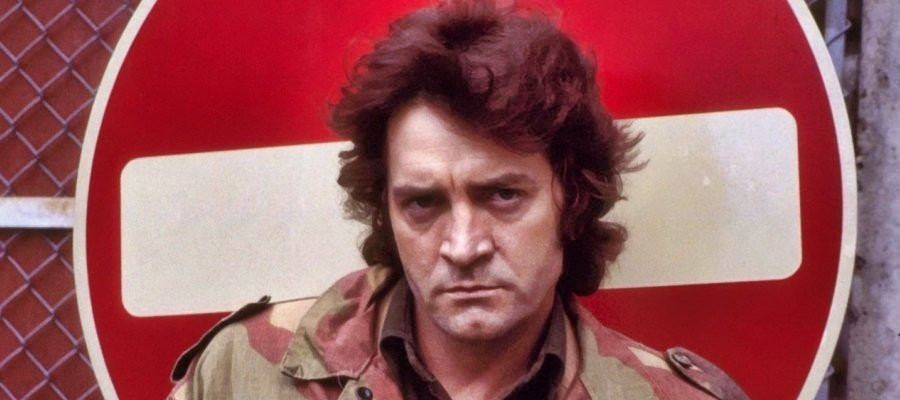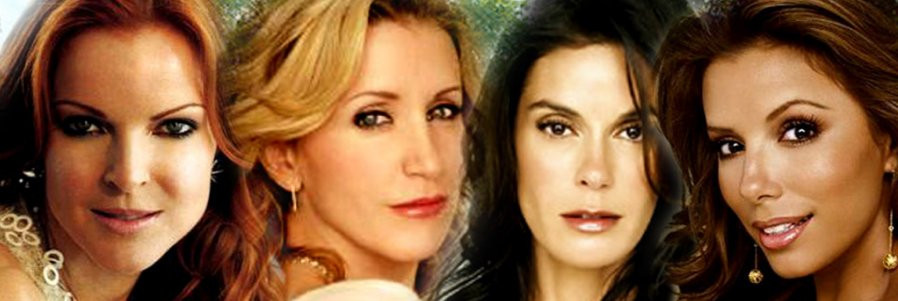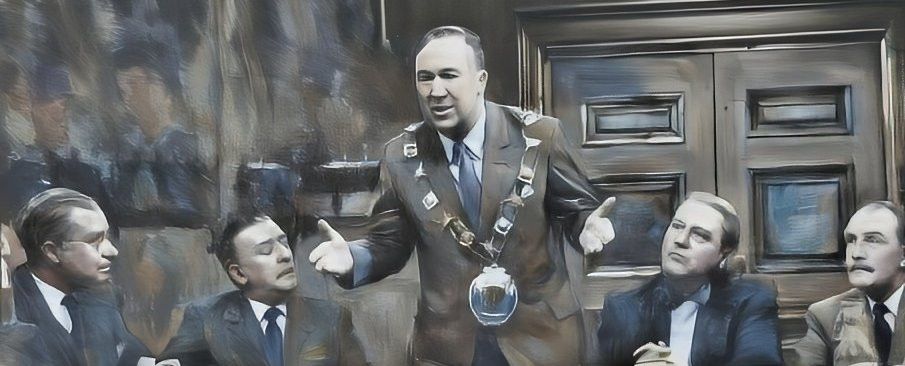
Swizzlewick
1964 - United KingdomIn the summer of 1964, the BBC unveiled Swizzlewick, a twice-weekly comedy-drama that attempted to chart the muddy, morally ambiguous waters of small-town politics. Created by David Turner, Swizzlewick was billed as an ambitious departure from the standard soap opera fare. Set in a fictional Midlands town nestled somewhere between the A4 and the A5—"where England prepares itself for Wales"—the series offered viewers a sharply satirical take on local government, complete with shady dealings, grandiose civic schemes, and a cast of councillors as vainglorious as they were recognisably human.
At the centre of the municipal madness was His Worship, Mayor Augustus Bent (Martin Wyldeck), a builder by trade and political operator by inclination. Bent's vision for a Community Centre—funded with public money, of course—was less a public good and more a private feeding trough, with contracts handed out like sweets at a fête to his fellow council cronies. Among them: Arthur Oakes (Geoffrey Denton), a fox-hunting gent desperate to maintain his country-club lifestyle; Harry Jolly (Philip Garston-Jones), a self-styled Europhile and champion of la dolce vita in a town with not much dolce and even less vita; and Ken Wiley (Patrick Mower), the PR man in search of a soul.
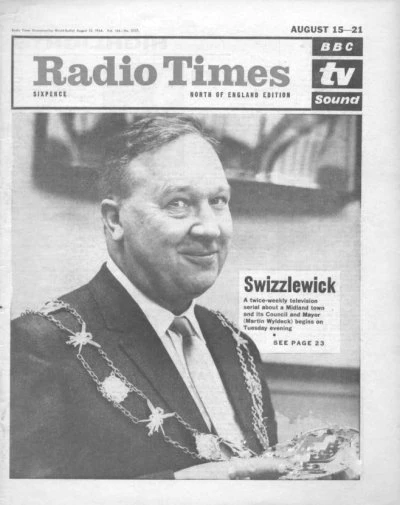
Balancing this band of merry misgovernors was a nominal opposition, led by the earnest and eternally frustrated Councillor Vernon Salt (Arnold Peters), a firebrand socialist undone as much by his own gutter tactics as by the sleazier ones of his foes. The supporting cast included the likes of Major Lamb (Ballard Berkeley), the decent-but-dim ex-Army man trying to steer a moral course through the mire; Mrs Felicity Smallgood (Margot Boyd), a prudish vigilante in perpetual war against sex and suggestion; and her poetic friend Miss Hart (Nancie Jackson), whose understanding of Keats—“Truth is Beauty, Beauty Truth”—appeared to cover most of life’s conundrums.
If the Town Hall was the heart of Swizzlewick, its soul lay in the townspeople. Optimists like Rufus Wright (Peter Russell), a kind-hearted printer and moral compass of sorts, and idealistic youth activists Audrey Willett (Christina Taylor) and Eustace Hadden (George Layton), gave the series its glimmers of hope. And then there was Wendy Yapp (Madeleine Mills), the tea girl with more curves than the local roads and the subject of the Mayor’s more private ambitions.
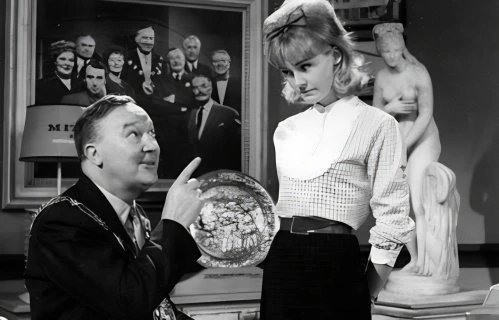
Swizzlewick was nothing if not bold. It poked fun at local government, questioned civic virtue, and dared to depict a provincial Britain where corruption wasn’t a scandal but a fact of life. Unsurprisingly, this didn’t sit well with everyone. The series quickly drew the ire of moral campaigner Mary Whitehouse, who found its 7.35pm time slot unfit for such “tasteless” material. A scene involving a prostitute was cut after a pre-broadcast leak, and an episode featuring a thinly veiled parody of Whitehouse herself—Mrs Smallgood launching a “Freedom from Sex” campaign—only stoked the fire.
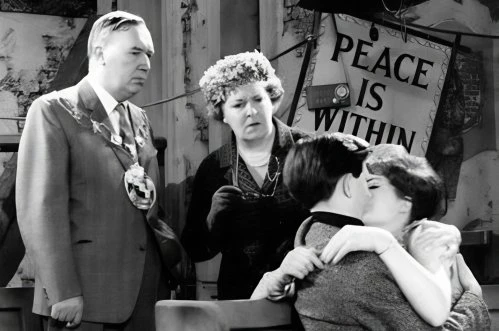
Mrs Whitehouse asked whether the programme had been previewed by the BBC and questioned Lord Normanbrook, chairman of the Corporation, “who decided it was suitable for family viewing?” She was told, “It’s too late to re-shoot,” to which she famously replied, “I don’t want re-shooting, I want cuts.” She delivered a letter of complaint in person to the Postmaster General, Mr Bevins, who appears to have passed the matter on to the BBC. The scene she found offensive was ultimately cut, though she later claimed she had not influenced the cut of two and a half minutes alone, suggesting that MPs, journalists, and public opinion had all brought pressure to bear. J. G. Johnson, general secretary of the Television and Screen Writers Guild, stated, “The BBC bears responsibility for the Swizzlewick controversy and should be made to answer for it.” A leader in The Times criticised the series for suggesting councillors were less than honest. National critics dismissed the series. The reviewer in The Guardian faulted it for “amateurish performances” and described it as “a new low in tastelessness.”
Creator David Turner resigned before the first month was out, reportedly with “regret” on both sides. By October, the BBC had decided to axe the series, quietly ending Swizzlewick’s brief 13-week run with the blunt headline in The London Evening News: ‘Swizzlewick Wiped Off The Map.’
‘The battle to establish Swizzlewick on the BBC television map has been lost. The administrative axe fell to-day and from November 11 the “rotten borough” of Swizzlewick will disappear. This despite hurried, anxious attempts to save the twice-weekly serial by giving it a new face. Donald Baverstock, BBC1 head, was unable to allow more time for Swizzlewick to strike form as artists’ contracts were up for renewal. The 20 actors and actresses have three-monthly contracts which run out in November. They wanted to know if contracts for three more months would be offered. So ends an experiment to introduce a new kind of twice-weekly serial. Swizzlewick's fight for survival went badly from the first bell. It surprised viewers who had expected the usual soap opera. The BBC said: "It represented something fresh in the serial field. It was an imaginative idea which hasn't quite come off.’
In the end, Swizzlewick was a noble failure—a £50,000 experiment in form and tone that aimed high, missed, and yet remains curiously fascinating. It startled audiences expecting cosy kitchen-sink drama and instead offered biting political satire. The fact that only one of its 26 episodes is believed to exist adds to its ghostly legend: a vanished borough, a noble if flawed attempt at telling uncomfortable truths about civic life, and an early casualty of Britain's culture wars.
Its epitaph might well be drawn from the series itself: not every plan, no matter how ambitious, can survive the town hall.
Rating: ★★☆☆☆ (for daring, not execution)
Seen this show? How do you rate it?
Seen this show? How do you rate it?
Published on July 10th, 2025. Written by Laurence Marcus for Television Heaven.


